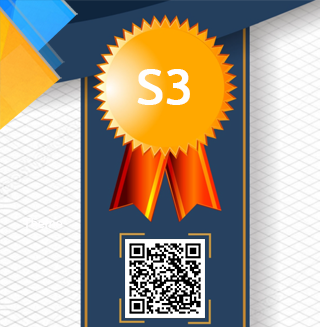Determinants of Utilization of Non-Communicable Disease (NCD) Posbindu by The Community at Hamlet of Ngabean Kulon 36 Sinduharjo Ngaglik Sleman
DOI:
https://doi.org/10.25311/keskom.Vol9.Iss3.1405Keywords:
Utilization, Posbindu, NCDAbstract
Non-communicable disease is a chronic disease that is very dangerous because it does not give symptoms or complaints. Minimum service standards for screening NCD at Ngaglik I Public Health have not reached the target due to the low utilization of PTM Posbindu. This study aims to analyze the determinants of the use of NCD Posbindu by the community at the hamlet of Ngabean Kulon 36 Sinduharjo Ngaglik Sleman. This research was conducted at Ngudi Waras Posbindu, hamlet of Ngabean Kulon 36 Sinduharjo Ngaglik Sleman. This type of research used quantitative methods with a cross-sectional approach. The sample was taken by proportional random sampling method with a total sample of 88 respondents. The data analysis used bivariate analysis with Fisher’s test and multivariate analysis with logistic regression. The results of the bivariate analysis showed knowledge (p=0.000), motivation (p=0.000), perceived benefits (p=0.000), health facilities (p=0.000), family support (p=0.000), and cadre support (p=0.020). Factors influencing Posbindu PTM utilization were health facilities (p=0.004) and family support (p=0.029). The most dominant factor in the utilization of Posbindu PTM is health facilities (p=0.004) with OR = 60.079, which means that health facilities have 60.079 opportunities to influence the community in utilizing Posbindu PTM. The need to assist cadres, increase existing resources to complement lacking health facilities, and innovate activities to attract people to take advantage of Posbindu for non-communicable diseases.
Downloads
References
World Health Organization. Noncommunicable Disease: Country Profiles 2018. Heart of Africa: Clinical Profile of an Evolving Burden of Heart Disease in Africa. Geneva: World Health Organizatiom; 2018. 1–223 p.
Siswati T, Kasjono HS, Olfah Y. Pengembangan Posbindu Penyakit Tidak Menular (PTM) Institusi sebagai Upaya untuk Mewujudkan Usia Produktif yang Sehat di Yogyakarta. Panrita Abdi - J Pengabdi Kpd Masy [Internet]. 2021;5(1):80–8. Available from: http://journal.unhas.ac.id/index.php/panritaabdi
Kemenkes RI. Profil Kesehatan Indonesia Tahun 2018. Kementerian Kesehatan RI. Jakarta; 2019. 1–556 p.
Dinas Kesehatan Sleman. Profil Kesehatan Sleman 2021. Dinas Kesehatan Sleman, editor. Sleman; 2021. 1–115 p.
Ni Kadek Ayu Purnamasari , Ni Kadek Muliawati NF. Hubungan Tingkat Pengetahuan Dengan Kepatuhan Masyarakat Usia Produktif Dalam Pemanfaatan Pos Pembinaan Terpadu Penyakit Tidak Menular (Posbindu PTM). Bali Med J [Internet]. 2020;7(1):93–104. Available from: https://www.balimedikajurnal.com/index.php/bmj/article/view/129
Maryaningsih. Hubungan Persepsi dan Kebutuhan Masyarakat Terhadap Pemanfaatan Pos Pembinaan Terpadu di Puskesmas Helvetia Medan. Gentle Birth [Internet]. 2020;3(4):30–7. Available from: http://ejournal.ikabina.ac.id/index.php/jgb/article/view/46
Sugiyono, Puspandhani ME. Metode Penelitian Kesehatan. cetakan 1. Yani Kamasturyani, editor. Bandung: CV Alfabeta; 2020.
Bhoki Y, Upa EEP, Dodo DO. Factors Related To The Utilization of Posbindu PTMin Lekogoko Village, The Working Area of The Aimere Health Center Year 2020. J Community Health. 2022;4(2):75–83.
Febriani CA, Perdana AA, Sari TD. Faktor-Faktor yang Berhubungan dengan Pemanfaatan Pos Pembinaan Terpadu Penyakit Tidak Menular. J Penelit Perawat Prof [Internet]. 2021;3(1):165–78. Available from: http://jurnal.globalhealthsciencegroup.com/index.php/JPPP/article/view/367
Anggraeni S, Fauziah E. Determinan Pemanfaatan Posbindu PTM di Desa Uwie Wilayah Kerja Puskesmas Muara Uya Kabupaten Tabalong. J Kesehat Masy [Internet]. 2020;10(2):138–44. Available from: https://jurnal.unismuhpalu.ac.id/index.php/PJKM/article/view/1368
Fitriani Si, Agustini F, Yogaswara D. Literatur Review : Determinant Factors Of Elderly Participation To Posbindu In Indonesia. J Ageing Fam [Internet]. 2021;(1). Available from: http://ejournal.urindo.ac.id/index.php/JournalOfAgeingAndFamily/index 1
Demeshko A, Buckley L, Morphett K, Adams J, Meany R, Cullerton K. Characterising trusted spokespeople in noncommunicable disease prevention: A systematic scoping review. Vol. 29, Preventive Medicine Reports. Elsevier Inc.; 2022.
Afiana AT. Faktor Presdiposing, Enabling dan Reinforcing yang Berhubungan Dengan Keikutsertaan Masyarakat Dalam Posbindu PTM Di Desa Tugurejo Slahung Ponorogo. Vol. 3. STIKES Bhakti Husada Mulia Madiun; 2019.
Watkins DA, William T Msemburi, Sarah J Pickersgill, Yoshito Kawakatsu, Adrian Gheorghe, Katie Dain, et al. NCD Countdown 2030: efficient pathways and strategic investments to accelerate progress towards the Sustainable Development Goal target 3.4 in low-income and middle-income countries NCD Countdown 2030 collaborators*. Health Policy (New York) [Internet]. 2022;399:1266–78. Available from: www.thelancet.com
Wiwi TW, Yanna HW, Panggabean MS. Faktor-faktor yang Mempengaruhi Pemanfaatan Program Pos Pembinaan Terpadu Penyakit Tidak Menular di Wilayah Kerja Puskesmas Batang Toru Kabupaten Tapanuli Selatan. Kesehat Ilm Indoneisa. 2018;3(2):92–108.
Alfiyah, Pujiyanto. An Analysis On The Implementation Of The Intergrated Guidance post (Posbindu) Activities For Non-Communicable Diseases at Bogor City In 2018. J Indones Heal Policy Adm. 2019;4(1):11–5.
Kurnianingsih, Dharminto, Winarni S, Mawarni A. Faktor-Faktor Yang Berhubungan Dengan Tingkat Pemanfaatan Posyandu Lansia di Kelurahan Bandarjo Kecamatan Ungaran Barat Kabupaten Semarang Tahun 2019. J Kesehat Masy [Internet]. 2019;7(4):573–80. Available from: https://ejournal3.undip.ac.id/index.php.jkm
Untad V, Napirah MR, Pongsapan N. Factors Related to the Utilization of the Integrated Development Posts of Non-Communicable Diseases (POSBINDU PTM) in Bulili Health Centre Area. Open Access Maced J Med Sci. 2022;10:27–32.
Sandra PN, Istika DK. Pengetahuan, Sikap dan Dukungan Keluarga Tentang Pemanfaatan Posbindu Penyakit Tidak Menular di Kretek Bantul. J Ilm Ilmu Keperawatan dan Ilmu Kesehat Masy. 2018;13(2):57–64.
Maharani, Sibagariang EE, Ginting R. Faktor Faktor Yang Mempengaruhi Pemanfaatan Pos Pembinaan Terpadu Penyakit Tidak Menular (Posbindu PTM) di Wilayah Kerja Puskesmas Glugur Barat Tahun 2018. 2018;4002:35–47.
Nasruddin NR. Faktor-faktor yang Mempengaruhi Pemanfaatan Pos Pembinaan Terpadu Penyakit Tidak Menular (POSBINDU PTM) di Wilayah Kerja Puskesmas Ballapang Kota Makasar [Internet]. UIN Alauddin Makasar; 2017. Available from: http://repositori.uin-alauddin.ac.id/id/eprint/6515
Ningsih NRW, Sari RE, Wardiah R, M.Ridwan, Ivanti R. Pemanfaatan Posbindu Ptm Oleh Pasien Hipertensi. J Ilmu dan Teknol Kesehat Terpadu. 2021;2(1):66–72.
Sari DWR, Savitri M. Faktor-Faktor yang berhubungan dengan Pemanfaatan POSBINDU Penyakit Tidak Menular (PTM) di Wilayah Kerja PUSKESMAS Kecamatan Setia Budi Kota Jakarta Selatan Tahun 2018. J Kebijak Kesehat Indones JKKI [Internet]. 2018;7(2):49–56. Available from: https://journal.ugm.ac.id/jkki/article/view/36849
Ginting SN, Anto A. Faktor Yang Memengaruhi Pemanfaatan Posbindu PTM Pada Lansia Di Wilayah Kerja Puskesmas Rantang Medang Kecamatan Medan Petisah Tahun 2018. J Kesehat Komunitas [Internet]. 2020;6(1):121–8. Available from: http://repository.helvetia.ac.id/id/eprint/2931/
Downloads
Submitted
Accepted
Published
How to Cite
Issue
Section
License
Copyright (c) 2023 Jurnal Kesehatan Komunitas (Journal of Community Health)

This work is licensed under a Creative Commons Attribution-NonCommercial-ShareAlike 4.0 International License.
Copyright @2017. This is an open-access article distributed under the terms of the Creative Commons Attribution-NonCommercial-ShareAlike 4.0 International License (http://creativecommons.org/licenses/by-nc-sa/4.0/) which permits unrestricted non-commercial used, distribution and reproduction in any medium











































